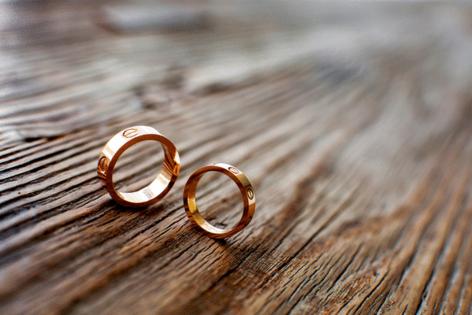Sarah Green Carmichael: Equitable marriages could save lives (and love)
Published in Op Eds
Most Americans who marry say “I do” between 25 and 30 — ages when serious illness is probably not the first thing on their minds. But in a way, tying the knot is a major health decision. For men, just being married is a predictor of living longer. For women, the picture is more complex.
Among men with prostate cancer, married men survive longer than single men; married men are also less likely to die of cardiovascular disease. And that’s not because healthier men are likelier to get married. In fact, “research shows the reverse is true,” concludes a summary of the studies by Harvard Health Publishing. “Unhealthy men actually marry earlier, are less likely to divorce, and are more likely to remarry.”
“There is a huge literature showing that husbands benefit from their wives’ support in terms of mortality and health outcomes — much more than the other way around,” says Joan Monin, an associate professor of public health at the Yale School of Medicine. (Most of the research focuses on opposite-sex couples.)
When it’s the wife who is sick, husbands sometimes struggle to support her, according to several studies from the 1990s through the 2000s. Multiple studies found that women were much more likely to donate kidneys to their husbands than husbands were to do the same for their lives. Some doctors and nurses say they still see those sorts of gender imbalances today.
The husbands who step up share some common attributes. They already participate in more household tasks than the average husband. They are more likely to be happy in the marriage. And perhaps most importantly, they tend to have egalitarian views of marriage, rather than seeing themselves as the breadwinner. This doesn’t mean they necessarily earn the exact same amount as their wives; but they view the marriage as an equal partnership.
For couples, this should be a powerful reminder that a marriage-of-equals isn’t just about being “politically correct” or “woke.” Nor is an egalitarian marriage only a matter of taming the stresses of parenthood, or evening out who gets the most leisure time and who carries the family’s mental load. For wives, an egalitarian marriage can be a matter of life and death.
Really. Patients with unmet care needs are at a greater risk of hospital readmission and, yes, dying. Conversely, good at-home caregiving is associated with better rates of recovery. Picking up medication, helping a spouse bathe, offering emotional support, shopping and cooking — it all matters. And yet married female patients have been, on average, only about half as likely to have their needs met as married male patients, according to research by Susan Masterson Allen, professor emerita of health services, policy and practice at Brown University.
Sometimes taking care of an ailing spouse is as basic as making the right phone calls. One study Allen worked on involved a sample of 90,000 disabled military veterans, 97% of whom were male. They were all eligible for supplemental government benefits, but only about 10% had signed up. When Allen and her collaborators looked at what distinguished the enrollees, “a strong predictor was being married,” she says. It was the wives who’d taken the trouble to make the calls and do the paperwork. A likely reason for the low overall uptake? Very few of these vets were married — only some 20%.
Some of these gender imbalances may be changing. One of the most recent studies of adult-to-adult caregiving, published earlier this year, found that men and women spent about the same amount of time taking care of a partner with a spinal cord injury, with the exception of tasks related to housekeeping. Women still spend more time on these chores than men do, but the gap is narrowing — not because men are doing more around the house, but because younger women are opting to do less. Women being choosier with their time? That represents a type of progress.
But it’s not enough. Many men still see themselves as “breadwinners” — even when their wives earn more money. And the research suggests these men are not as committed to helping when their wives get sick. Perhaps they are so focused on contributing financially that they overlook other forms of support. Or they fear the impact of caregiving on their careers: One of the biggest reasons husbands give for not spending more time caring for ailing wives (or donating kidneys to them) is concern about missing work.
Maybe the real mystery isn’t why some husbands provide more care but why wives so consistently do. Women are socialized from a young age to view caregiving as a core feminine duty. It’s so deeply ingrained that many people will tell you that women are just better at it — that it’s innately feminine. But studies find that both men and women suffer similar rates of stress associated with caregiving. There is no female “caregiver gene.”
Of course, people can change. For many men, says Yale’s Monin, taking care of an ailing wife can open up a new, care-oriented sense of identity.
For their wives, that evolution may make all the difference.
____
This column does not necessarily reflect the opinion of the editorial board or Bloomberg LP and its owners.
Sarah Green Carmichael is a Bloomberg Opinion columnist and editor. Previously, she was an executive editor at Harvard Business Review.
©2024 Bloomberg L.P. Visit bloomberg.com/opinion. Distributed by Tribune Content Agency, LLC.




























































Comments